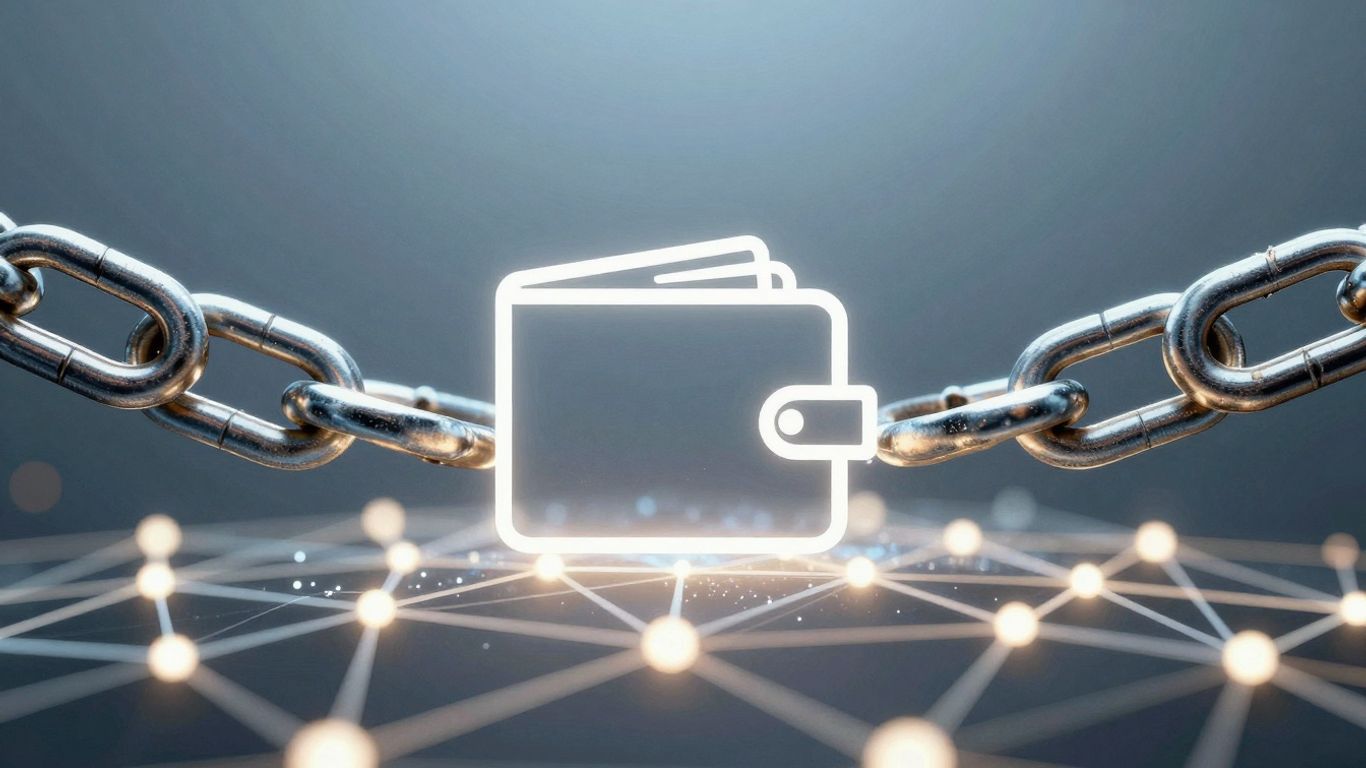[ newsletter ]
Stay ahead of Web3 threats—subscribe to our newsletter for the latest in blockchain security insights and updates.
Thank you! Your submission has been received!
Oops! Something went wrong. Please try again.
Explore the Veritas Protocol overview, featuring data protection, security, and cloud management solutions.





Veritas Protocol has carved a niche in the landscape of data protection and management. With a suite of tools and services designed to secure and manage data across various platforms, it’s becoming increasingly essential for businesses. This overview of Veritas Protocol's capabilities highlights what makes it a go-to choice for enterprises looking to safeguard their information and streamline their operations.
Data protection is a big deal these days, and it's not just about avoiding fines or bad press. It's about keeping your business running smoothly and maintaining trust with your customers. Companies can't afford to treat it as an afterthought anymore. It needs to be built into the core of your IT strategy from the start.
End-to-end encryption is a must-have. It's like having a secure pipeline for your data, ensuring that only authorized users can access it. If you don't have proper encryption across your networks, databases, and applications, you're leaving yourself open to attacks. Think of it as layers of security, each one adding an extra level of protection. Customer-defined access policies, native backup, event logging, and strong passwords are all part of a solid encryption strategy. It's not just about keeping outsiders out; it's also about controlling who has access within your organization.
Companies are increasingly turning to advanced turnkey solutions for data protection services. It's a non-negotiable priority, but many IT professionals struggle with it. As your company grows, you create and manage vast amounts of data that need protection. Security needs to be incorporated from the start. A data breach can cost money, time, and damage your company’s reputation. No firm is immune to hacks. The bigger your data gets, the bigger the challenges your company faces.
Backup as a Service (BaaS) is becoming increasingly popular, and for good reason. It offers a flexible and scalable way to protect your data without the hassle of managing your own backup infrastructure. Here are some of the benefits:
Implementing a robust BaaS solution can significantly improve your data protection posture, providing peace of mind and ensuring business continuity in the event of data loss or corruption.

It's a bit of a wild west out there with so many blockchains popping up. The problem? Each one has its own way of doing things, especially when it comes to security. That's where unified standards come in. Veritas Protocol aims to bridge these gaps, creating a more secure and interoperable blockchain ecosystem. Think of it like this: if every country had its own electrical outlets, traveling would be a nightmare. Unified security standards are like universal adapters for blockchains.
AI is changing the game, and security is no exception. Veritas Protocol uses AI-driven security to detect vulnerabilities and even self-heal smart contracts. It's like having a tireless security guard that never sleeps and gets smarter over time. The AI is custom-trained, which means it's specifically designed to handle the unique challenges of blockchain security. It's not just a generic AI slapped on top; it's built from the ground up for this purpose.
One of the biggest hurdles in the blockchain world is getting different networks to talk to each other. Veritas Protocol tackles this head-on with cross-network compatibility. This means that applications and data can move more easily between different blockchains, without sacrificing security. It's like building bridges between isolated islands, opening up new possibilities for collaboration and innovation. This is achieved through:
Security isn't something you can just build in a vacuum. It requires input from a wide range of stakeholders, including developers, users, and security experts. Veritas Protocol emphasizes stakeholder engagement throughout the development process. This ensures that the security standards are not only technically sound but also practical and user-friendly. It's like building a house with input from the future residents, making sure it meets their needs and expectations. This collaborative approach helps to build trust and confidence in the security of the protocol.
Building a secure blockchain ecosystem is a team effort. It requires collaboration, open communication, and a commitment to continuous improvement. By involving all stakeholders in the development process, we can create security standards that are robust, adaptable, and truly effective.
Data management is more than just storing files; it's about making data accessible, secure, and useful. Veritas Protocol offers a suite of features designed to handle the complexities of modern data environments. Let's take a look at some key aspects.
Automated data capture is a game-changer. Instead of manually collecting and organizing information, Veritas Protocol automates the process. This saves time, reduces errors, and ensures that data is consistently captured across different sources. Think of it as a smart system that automatically grabs the data you need, when you need it. This is especially useful in industries where data is constantly changing and updating. For example, imagine a retail business tracking sales data. With automated data capture, they can get real-time insights into which products are selling well, without having to manually compile reports. This allows them to make quick decisions about inventory and marketing.
Information archiving is crucial for compliance and long-term data retention. Veritas Protocol provides solutions for archiving data in a way that meets regulatory requirements and ensures data integrity. It's not just about storing old files; it's about creating a searchable, accessible archive that can be used for audits, legal discovery, and historical analysis.
Consider these points about archiving:
Archiving isn't just about keeping old data around; it's about making sure that data remains useful and accessible for years to come. It's a strategic approach to data management that can save time, money, and headaches down the road.
In today's world, digital forensics and eDiscovery are increasingly important. Veritas Protocol offers tools to help organizations investigate data breaches, respond to legal requests, and uncover fraud. These tools allow you to search through vast amounts of data, identify relevant information, and present it in a way that's admissible in court. Think of it as a detective toolkit for your data. Need to find all emails related to a specific project? Or track down who accessed a sensitive file? Veritas Protocol's digital forensics and eDiscovery tools can help. You can use advanced filtering to find the exact data you need.

It's a fact of life: stuff breaks. Servers crash, networks go down, and sometimes, entire data centers face outages. That's where enterprise resiliency and recovery come in. It's all about making sure your business can keep running, or get back up and running fast, even when things go wrong. Think of it as your digital safety net.
Getting your data back quickly is the name of the game. Nobody wants to wait days or weeks to recover from a failure. We're talking about minimizing downtime, which directly impacts the bottom line. The faster you can restore data, the less disruption to your operations. It's not just about having backups; it's about having a plan and the tools to restore those backups efficiently. Think granular recovery, instant access, and automated processes. It's about getting back to business as usual, ASAP. You need to have a solid DR solution in place.
Storage resiliency is all about building systems that can withstand failures without losing data or impacting performance. This means using technologies like RAID, replication, and distributed storage to create redundant copies of your data. If one drive fails, another takes over seamlessly. If one server goes down, the system keeps running. It's about designing your storage infrastructure to be fault-tolerant and self-healing. It's like building a fortress around your data, protecting it from all kinds of threats.
Here are some key aspects of storage resiliency:
Disaster recovery planning is more than just backing up your data. It's about creating a comprehensive plan that outlines how your organization will respond to a wide range of disasters, from natural disasters to cyberattacks. This plan should include everything from identifying critical systems and data to defining recovery time objectives (RTOs) and recovery point objectives (RPOs). It should also include detailed procedures for restoring systems, communicating with stakeholders, and testing the plan regularly. It's about being prepared for anything, so you can minimize the impact of a disaster and get back to business as quickly as possible. It's about having a data breaches plan.
A good disaster recovery plan isn't something you write once and forget about. It needs to be a living document that is regularly reviewed, updated, and tested. The world changes, your business changes, and your disaster recovery plan needs to change with it. Regular testing is key to identifying weaknesses and ensuring that the plan will actually work when you need it most.
Cloud data management is changing fast, and Veritas is right there in the middle of it. It's not just about sticking your data somewhere else; it's about doing it smarter, more efficiently, and with better control. We're seeing a big shift in how companies think about their data in the cloud, and Veritas is helping lead the way.
Veritas Alta™ is a big deal. It's basically the next generation of data management from Veritas, built specifically for the cloud. It's designed to give you a single pane of glass to manage all your data, no matter where it lives. Think of it as a central hub for all things data, making it easier to protect, govern, and get value from your information. It's a platform that's constantly evolving, with new features and capabilities being added all the time. It's a pretty big deal for data archival excellence.
SaaS applications are everywhere, and protecting the data in them is super important. Veritas offers protection for things like Microsoft 365, Google Workspace, and Salesforce. It's not enough to just assume that these providers are taking care of everything. You need a backup and recovery solution that's specifically designed for SaaS environments. Here's why it matters:
Having a solid SaaS protection strategy is no longer optional; it's a must-have for any organization that relies on these applications. It's about taking control of your data and ensuring that you can always get it back when you need it.
Cloud backup is a cornerstone of modern data protection. It's about getting your data offsite, securely, and in a way that's easy to recover. Veritas offers a range of cloud backup solutions to fit different needs and budgets. Here's what to consider:
We're committed to making our emissions reduction efforts as clear as possible. It's not just about doing the right thing; it's about showing how we're doing it, so others can follow suit and we can all hold each other accountable. It's a big challenge, but transparency is key.
Our protocols focus heavily on methane, a potent greenhouse gas. We use specific calculations to determine methane emissions from natural gas systems, covering everything from production to distribution. It's a complex process, but we're working to make it as accurate as possible. The goal is to provide a reliable way to measure and, more importantly, reduce these emissions. We are working to accelerate efforts to reduce global methane emissions.
To ensure comparability and credibility, we've developed a consistent approach to emissions reporting. This means using standardized methods and metrics, so everyone is speaking the same language. It's about creating a level playing field, where emissions reductions can be accurately tracked and verified. This consistency is vital for building trust and driving meaningful change.
All our protocols are available online for anyone to use. We believe in open access and collaboration. By sharing our methods and data, we hope to encourage wider adoption of emissions reduction strategies. It's about empowering others to take action and contribute to a more sustainable future. We want to make it easy for anyone to understand and implement these protocols, fostering a collective effort to reduce emissions.
We believe that transparency is the cornerstone of effective emissions reduction. By openly sharing our protocols and data, we aim to foster collaboration and accelerate progress towards a more sustainable future. This commitment to openness is not just a policy; it's a core value that drives our actions and shapes our approach to environmental stewardship.
Here's a simplified example of how we might track emissions reductions over time:
We also focus on:
Veritas Protocol has really made a name for itself in the data protection and management world. It's not just about the tech; it's about who trusts them with their data. Let's take a look at where they stand and who they work with.
Veritas boasts a pretty impressive client list, including a good chunk of the Fortune 100. These aren't just small-time partnerships; we're talking about major corporations relying on Veritas for their data needs. Landing these big fish says a lot about the reliability and scalability of Veritas's solutions. It shows they can handle the complex data requirements of the world's largest companies. It's a big deal, honestly.
NetBackup™ is a key player in Veritas's portfolio, and it's worth talking about its position in the market. It's not just another backup solution; it's a comprehensive platform that's been around for a while and has a solid reputation. It's known for its reliability and the breadth of its features. The finance sector is being revolutionized by companies like Veritas Capital.
Customer success stories are where you really see the impact of a product. Here are some common themes from Veritas's customer success stories:
It's one thing to talk about features and benefits, but it's another to see real-world examples of how Veritas is helping companies protect and manage their data. These stories provide concrete evidence of the value that Veritas brings to its clients. It's not just marketing hype; it's real results.
In summary, Veritas Protocol stands out with its solid capabilities in data protection and security across various platforms. It’s clear that they focus on making sure your data stays safe, whether it’s in the cloud or on-site. With a strong reputation among big companies, they’ve proven their worth in the industry. If you’re looking for reliable solutions to manage your data, Veritas Protocol is definitely worth considering. They’ve got the tools and experience to help you keep everything secure and running smoothly.
Veritas Protocol is a system that helps keep data safe and organized, especially for businesses. It uses advanced technology to protect information across different platforms.
Veritas uses a method called end-to-end encryption. This means that your data is kept secure from the moment it is created until it is accessed, making it very hard for anyone to steal.
Veritas provides various services like data backup, recovery solutions, and protection for cloud storage. These services help businesses keep their data safe and recover it quickly if something goes wrong.
Yes, Veritas Protocol is designed to work across different blockchain networks. This means it can help secure data no matter which blockchain technology is being used.
Veritas Alta™ is a cloud data management platform. It helps businesses manage their data in the cloud, ensuring it is secure and easily accessible.
Veritas has protocols to calculate and report methane emissions. This helps companies track their environmental impact and work towards reducing emissions in a clear and reliable way.


